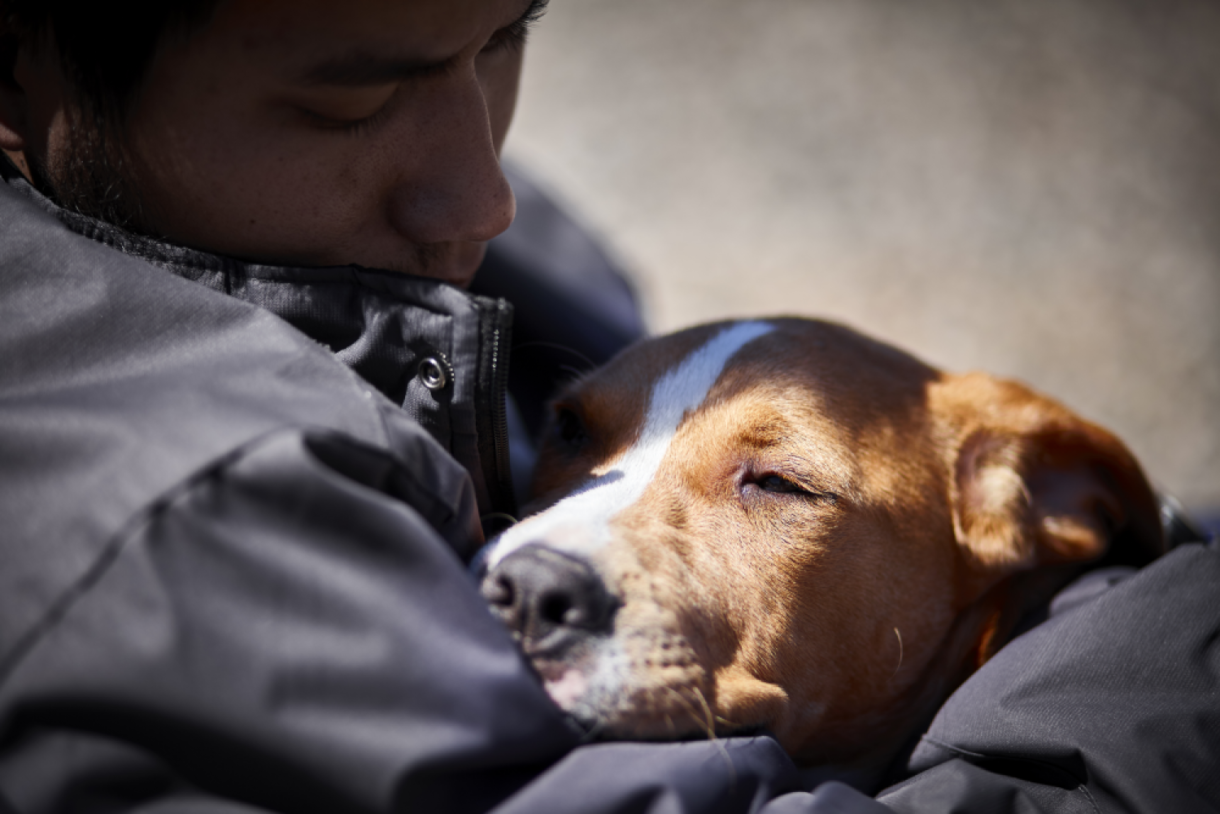Kitty Block and Sara Amundson

Service dogs can alert their owners to PTSD triggers, such as crowded areas or unanticipated risks. They can also help to reduce their handlers’ anxiety by providing security and a calming effect. Photo by Shutterstock
The U.S. House has just approved a bill that would expand opportunities for veterans to get involved with training and adopting service dogs, leading to better lives for both the animals and the people helping them.
The PAWS for Veterans Therapy Act, H.R. 4305, will create a pilot program at the U.S. Department of Veterans Affairs (VA) to help individuals with post-deployment mental health disorders by pairing them with dogs to train as service animals. The bill directs the VA to provide grants to nonprofit entities that teach veterans how to train service dogs. Once the program is completed, veterans can, if they wish, adopt their dogs for ongoing therapy.
The measure passed the House by a voice vote. The issue has such strong bipartisan support, the bill arrived on the House floor with 324 cosponsors from both sides of the aisle.
There are few who would deny that we owe a special debt of gratitude to those men and women who have served in our nation’s armed forces, especially in combat. This is particularly true given our current understanding of the significant emotional challenges associated with conflict and its aftermath. An alarming number of veterans and current service members face an invisible and formidable enemy in Post-Traumatic Stress Disorder and other mental health challenges.
The legislation relies upon some of the best mental health interventions available. Working with service dogs has been shown to enhance mental health. Among other benefits, it helps participants focus attention and energy toward training the dog. Moreover, the positive emotions they experience when the dogs perform their tasks well can produce demonstrable social and psychological benefits, too.
Therapy centered on productive and satisfying employment has also been shown to successfully lower depression, anxiety, anger, sleep disturbances and alcohol and substance abuse, as well as enhance interpersonal relationships.
Once the service dogs are trained, they can be invaluable companions for veterans. They often alert their owners to PTSD triggers, such as crowded areas or unanticipated risks. They can also help to reduce their handlers’ anxiety by providing security and a calming effect. And any dog breed is fit to serve, including Labradors, golden retrievers, mixed breeds and animals rescued from shelters.
No society can afford to neglect the post-deployment well-being of its service members. Our thanks to Reps. Steve Stivers, R-Ohio, Kathleen Rice, D-N.Y., John Rutherford, R-Fla., Mikie Sherrill, D-N.J., Michael Walz, R-Fla., Gil Cisneros, D-Calif., Neal Dunn, R-Fla., and Elissa Slotkin, D-Mich., for recognizing the social, psychological and medical benefits that the human-animal bond provides to improve the health and well-being of veterans, and for their leadership in bringing this measure so far in such a short time. We now urge the Senate to swiftly act upon a companion bill, the K9s for Veterans Therapy Act, S. 2948, sponsored by Sens. Thom Tillis, R-N.C., and Kyrsten Sinema, D-Ariz. This well-crafted, urgently needed legislation is worthy of every American’s support.
Sara Amundson is president of the Humane Society Legislative Fund.




























































































































